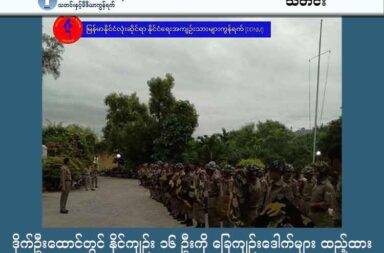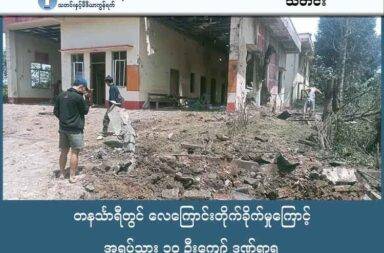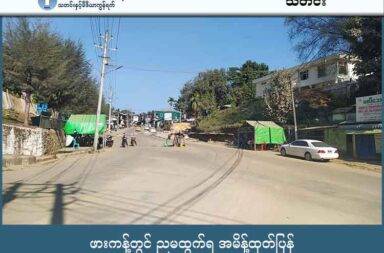Ethnic Parties Aim to Coordinate Campaigns in Eastern Burma
The goal is to avoid competing for the same constituencies in next year’s general elections.
By NETWORK MEDIA GROUP
Thursday, August 8, 2019
Leaders of the Mon Unity Party (MUP) said that they will negotiate with other ethnic parties in eastern Burma to ensure that they are not competing with each other during next year’s general elections.
According to the party’s secretary-1, Nai Layi Tama, the plan is to coordinate with the Karen National Democratic Party (KNDP) and the Tavoy Nationalities Party (TNP) to decide which constituencies each party should contest in 2020.
“Our party has a policy to negotiate with other ethnic political parties so that our efforts don’t overlap in the same constituencies,” Nai Layi Tama told NMG.
Aye Min, the chairman of the TNP, said that informal talks have already been held between his party and the MUP.
“We’ve already spoken with them about our plans to run in a constituency in the northern part of Yay Phyu Township [in Tanintharyi Region]. We will also negotiate to decide who will run in which parts of Kawthaung, for example, in Mon- and Tavoyan-majority areas. But we haven’t started to discuss this yet,” said Aye Min.
Meanwhile, Win Maw Oo, a spokesperson for the army-backed Union Solidarity and Development Party (USDP), said that his party would give priority to ethnic political parties running in ethnic areas in the 2020 elections.
The MUP is strongly favored to win all seats in Mon State in the 2020 general elections, according to political observers.
The MUP was formed after the successful merger of the All Mon Regions Democracy Party, the Mon National Party, and other Mon political parties and organizations. The MUP was allowed to register with the Union Election Commission on May 17 and was registered to contest next year’s election on July 11.
According to MUP officials, the party plans to run in constituencies in two states and three regions in the upcoming elections.
The MUP has opened branch offices in 23 townships in Mon and Karen states as well as in Yangon, Bago and Tanintharyi regions.


